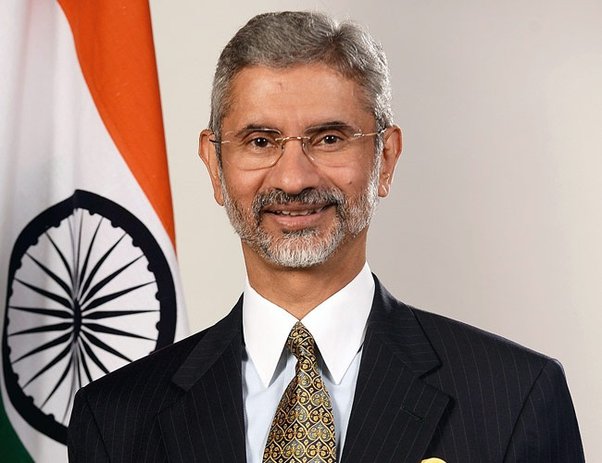
Jaishankar underscores projects like multiple connectivity corridors, cites events in Red Sea
NEW DELHI : In a world increasingly fraught with conflict and uncertainty, the necessity for diversified connectivity routes has never been more critical.
At the heart of this strategic pivot is India’s External Affairs Minister, S Jaishankar, who recently underscored the vital importance of projects like the India-Middle East-Europe Economic Corridor (IMEC), alongside other alternative pathways, to ensure sustained and resilient global connectivity.
During his address at the 2nd CII India Europe Business and Sustainability Conclave held here on February 20, 2024, Jaishankar articulated a vision that not only prioritises Europe but also seeks to integrate diverse regions through innovative corridors of connectivity.
Highlighting the IMEC’s significance, Jaishankar remarked, “The India-Middle East-Europe Economic Corridor (IMEC)â€æ And when this agreement in principle was reached last September on the sidelines of G20, perhaps all of us were not adequately cognisant of the fragility of existing connectivity. Recent events on the Red Sea, in the Gulf of Aden, have reminded us of that.”
He added, “And it isn’t just recently that we go back we saw what happened when the Suez Canal was blocked by a mishap for some time. So, the need today to create multiple corridors of connectivity, supporting corridors of connectivity, different forms with their own inbuilt resilience is something which is vital and it is vital because at either end of this, you actually have two big production and consumption centers, Europe and India.
The minister also discussed alternative connectivity projects beyond IMEC, including the potential of a polar route, offering a novel logistical pathway between India and Europe through the Indo-Pacific.
REGIONAL CONNECTIVITY IN SOUTH ASIA
Furthermore, Jaishankar elaborated on regional connectivity initiatives within South Asia, such as the Bangladesh-Bhutan-India-Nepal (BBIN) initiative and the ambitious trilateral highway project aimed at connecting India with Vietnam, though currently facing challenges in Myanmar.
“I must also share with our European friends that within South Asia, in this region and beyond, there are again very big connectivity projects already under execution, and still bolder thoughts in the making between India and its immediate neighbors, Bangladesh, Nepal, Bhutan, we have seen, actually, in terms of roads, grid connections, waterways, a very big change, which has come about,” he said.
Adding, “There is a much more arduous project, the trilateral highway. And in fact, if the IMEC connects India, to Europe through the West, and the trilateral highway when it is done, and we have challenges in Myanmar, but when the trilateral highway is done, it would go all the way to the Vietnamese coast. So you actually will have a lateral connectivity grid, which would connect Europe all the way to the Pacific, mostly by land. So it is surely a thought for your consideration.
Giorgos Gerapetritis, Minister of Foreign Affairs, the Hellenic Republic (Greece) said: “India has emerged as the voice of Global South during G20. India-EU partnerships offer unique opportunities. I am convinced that the India-Middle East-Europe Corridor will bring prosperity to India and Europe. Greece aspires to be an integral part of this regional project. Being the gateway for India to Europe, this very ambitious connectivity project will enhance the strategic importance of the region both economically and geopolitically, and promote greater peace and stability.”
Jaishankar’s advocacy for these projects underscores not only the strategic importance of Europe to India but also the broader vision of enhancing connectivity in an era defined by digital transformation and emerging technologies.
He highlighted the significant strides in bilateral relations, underscored by frequent high-level exchanges and the deepening of economic and technological partnerships.
The external affairs minister’s vision is supported by international counterparts, with ministers from Estonia, Greece, and Latvia expressing their support for the IMEC and other collaborative projects, emphasising the synergies between digital innovation, governance, and sustainable development.
He said Europe is truly a priority for India. Explaining his statement, he said: “The Prime Minister of India during his tenure has been 27 times to Europe. He has received 37 heads of European governments. I have visited Europe 29 times and I have received 36 of my colleagues during this period. I underline these numbers to emphasise how deep, how sustained and how continuous the relationship has been.
Speaking about human skilling and mobility, Jaishankar said: “We have in the last few years concluded a number of agreements on mobility with our European partners and the plus point of these agreements are that one, they promote legal movement and two, they promote movement of certain skill sets. So, it is something that fits in very neatly with the consumer requirement at the other end as well.”
Margus Tsahkna, Minister of Foreign Affairs, Republic of Estonia stated: “Estonia has very well-educated people who can think out of the box. Digitalisation is changing the process of governance. India has innovation and technology, we can have a huge potential together.”
Jaishankar also underlined the importance of concluding free trade agreements with European Union and EFTA. “It is important because you can already see that our trade levels have been growing steadily, but there is a well-founded realisation that we need a more positive framework to accelerate it,” he noted.
KriÅájanis KarinÅá, Minister of Foreign Affairs, The Republic of Latvia, noted “Our country is hungry to learn, it is hungry to work.” He stressed that the European Union and India both need each other and that Latvia can be an entry point for a large European market.
Chandrajit Banerjee, Director General, Confederation of Indian Industry said: “The growth and sustainability of India’s relations with Europe builds on the recent milestones in the relationships including trade and technology council with the EU, the India- Middle East- Europe Economic Corridor and the Partnership for Global Infrastructure and Investments.

